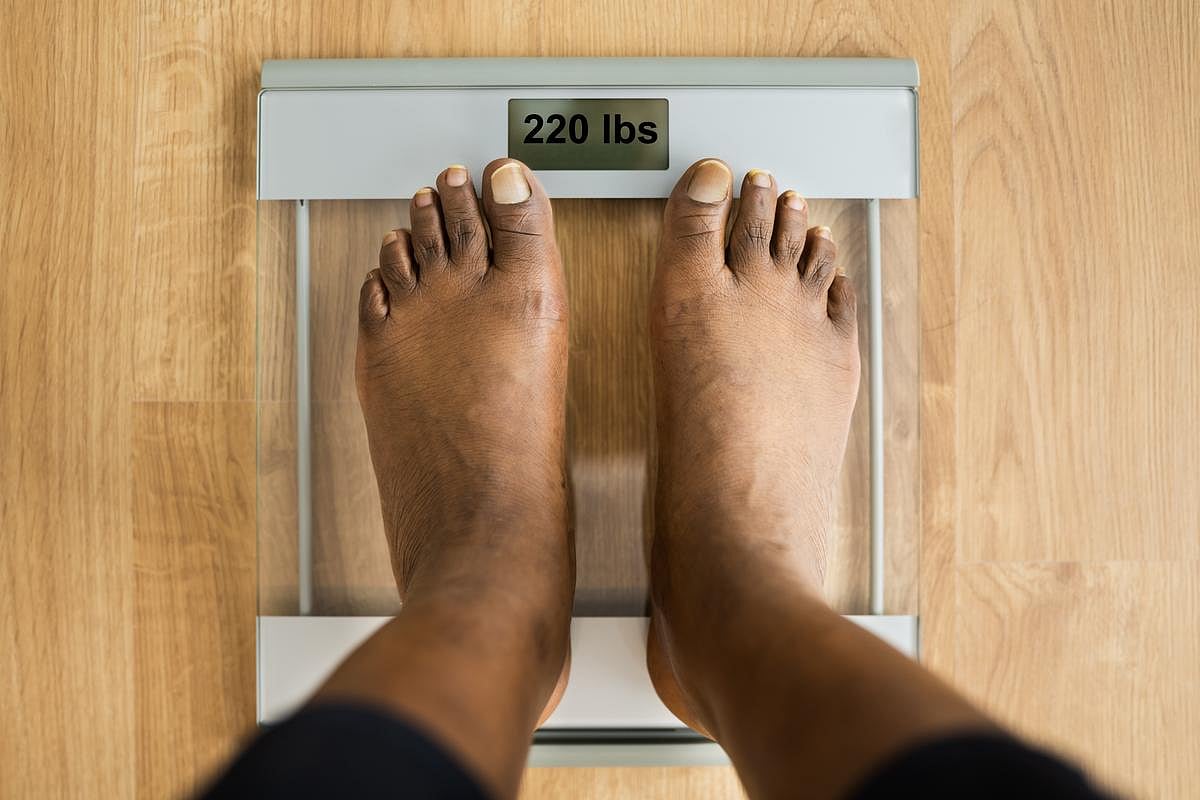Get Healthy!

- Posted September 19, 2025
GLP-1 Pill Effective For Weight Loss, Clinical Trials Show
An effective weight-loss pill to rival injectable drugs like Ozempic and Zepbound might be on the horizon, clinical trial results show.
An experimental GLP-1 pill called orforglipron promoted substantial weight loss without the need for weekly injections, according to final clinical trial results published Sept. 16 in The New England Journal of Medicine.
Orforglipron also outperformed a tablet form of semaglutide that’s already on the market, in both driving weight loss and controlling blood sugar, according to early findings from a head-to-head clinical trial announced by the drug’s maker, Eli Lilly and Company.
Based on these findings, Lilly says it plans to submit orforglipron as a weight-loss drug later this year for U.S. Food and Drug Administration (FDA) review.
Having a weight-loss pill that works as well as blockbuster drugs like Ozempic and Zepbound could be a game-changer for people fighting obesity, lead researcher Dr. Sean Wharton, director of the Wharton Medical Clinic in Ontario, Canada, said in a news release.
“This could mean an expansion of obesity interventions to groups who are currently excluded due to the cost of and lack of access to injectable medications,” he said.
Glucagon-like peptide-1 (GLP-1) drugs mimic the GLP-1 hormone, which helps control insulin and blood sugar levels, decreases appetite and slows digestion of food.
For the first clinical trial, researchers randomly assigned three different doses of orforglipron to people with obesity for about a year and a half. A fourth group took a placebo.
More than 3,100 patients from nine countries took part in the trial, which found that people lost more weight as orforgliprion doses increased.
Body weight loss was an average 11% with a 36 mg dose; 8% with a 12 mg dose; and under 8% for a 6 mg dose, the trial found.
“After 72 weeks of treatment, all the patients in the three orforglipron groups had a significant and clinically meaningful dose-dependent reduction in body weight,” researchers wrote in their study.
About 55% of patients in the 36 mg dose group lost 10% or more of their body weight; 36% had a reduction of 15% or more; and 18% had a reduction of 20% or more, according to the study.
By comparison, 13% of placebo patients lost 10% or more; 6% lost 15% or more; and 3% lost 20% or more.
The most common side effects involved gastrointestinal problems, which caused about 7% of the group taking the heaviest dose of orforgliprion to drop the drug, results showed.
“In patients with obesity, the use of orforglipron resulted in statistically and clinically significant weight reductions and an adverse-event profile that was consistent with findings regarding other GLP-1 receptor agonists,” researchers concluded.
They noted that weight loss wasn’t as substantial as with injectable semaglutide, which reportedly promotes reductions as high as 15% to 20%. But injectables also are harder to start and stick with than a pill, they said.
In the head-to-head trial against the semaglutide pill Rybelsus, orforglipron worked better to help people with type 2 diabetes get their blood sugar under control and lose weight.
Semaglutide is the same medication found in Ozempic and Wegovy. Rybelsus, available as a type 2 diabetes drug, is made by the same company as Ozempic/Wegovy, Novo Nordisk.
The trial randomly assigned about 1,700 people with type 2 diabetes to take two different doses of orforglipron (12 mg and 36 mg) or semaglutide (7 mg and 14 mg) for 12 months.
The two doses of orforglipron did a better job at reducing A1C, a marker of elevated blood sugar, results showed.
A1C dropped by an average of 1.9% and 2.2% with the low and high doses of orforglipron, compared with 1.1% and 1.4% with semaglutide.
People taking orforglipron also lost more weight compared with those assigned semaglutide — 14.6 pounds and 19.7 pounds versus 7.9 pounds and 11 pounds.
"Head-to-head trials are a gold standard for comparing potential treatments," Kenneth Custer, executive vice president and president of Lilly Cardiometabolic Health, said in a news release.
"In this type 2 diabetes trial, orforglipron, even at the lower dose, outperformed both doses of oral semaglutide in reducing A1C,” Custer said. “At the highest dose, orforglipron helped nearly three times as many participants reach near-normal blood sugar versus the highest dose of oral semaglutide.”
He added: “These results, combined with orforglipron's once-daily oral dosing and broad scalability, reinforce its potential as a foundational treatment for type 2 diabetes.”
Researchers announced the final results from the first trial Wednesday at a meeting of the European Association for the Study of Diabetes in Vienna.
Lilly funded both clinical trials.
More information
Eli Lilly and Company has more about orforglipron.
SOURCES: European Association for the Study of Diabetes, news release, Sept. 16, 2025; Eli Lilly and Company, news release, Sept. 17, 2025; The New England Journal of Medicine, Sept. 16, 2025

